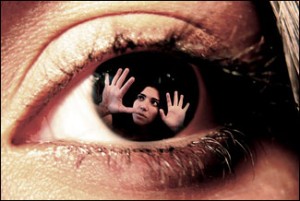In the “The Mental Health Doctor: Your Phone Screen & Sitting Is Destroying Your Brain” episode of Diary of a CEO, Dr. Aditi, a leading mental health expert, explores how modern habits are undermining our mental well-being. Dr. Aditi’s insights provide a compelling look into how excessive screen time and prolonged sitting are impacting our brains and overall health.
Dr. Aditi begins by discussing the pervasive issue of screen addiction. She explains that our constant engagement with phones and other digital devices is not just a minor inconvenience but a significant threat to our mental health. The barrage of notifications, social media updates, and constant connectivity creates a state of mental overload. This constant stimulation can lead to heightened stress levels, anxiety, and a decrease in our ability to focus. Dr. Aditi notes that the blue light emitted by screens also disrupts our circadian rhythms, which affects our sleep quality. Poor sleep, in turn, exacerbates issues like mood swings, irritability, and cognitive decline.
In addition to screen time, Dr. Aditi addresses the impact of prolonged sitting. Many people spend hours each day sitting at desks or in front of screens, which is detrimental to both physical and mental health. Dr. Aditi explains that extended periods of inactivity can lead to physical problems like poor posture, back pain, and cardiovascular issues. More importantly, she highlights the mental health consequences, such as increased feelings of lethargy and a diminished ability to cope with stress. The lack of movement reduces blood flow and oxygen to the brain, which impairs cognitive function and contributes to mental fatigue.
Dr. Aditi advocates for a proactive approach to mitigating these issues. She suggests integrating regular physical activity into daily routines, such as short breaks for stretching or walking, to counteract the negative effects of prolonged sitting. Additionally, she recommends setting boundaries for screen use, such as designated times for checking devices and tech-free periods before bedtime. Dr. Aditi also emphasizes the importance of practicing mindfulness and engaging in activities that promote mental relaxation and clarity.
In summary, Dr. Aditi’s discussion highlights the critical need to address the negative impacts of excessive screen time and sedentary behavior on mental health. By making mindful adjustments to our daily habits, such as increasing physical activity and managing screen use, we can enhance our mental well-being and overall health.
Click Here to watch the video!!
***Please speak to your healthcare professional about this information if you find that you could be struggling***
After watching the video link above, tell me your thoughts.
- How can we effectively balance screen time with other activities to reduce mental overload?
- What specific types of physical activities are most beneficial for countering the effects of prolonged sitting?
- Can you suggest practical strategies for improving sleep quality that address the blue light issue from screens?
- What are some signs that excessive screen time or sedentary behavior is affecting mental health, and how can we recognize them early?
- How can individuals integrate mindfulness practices into their daily routines, especially if they have a busy schedule?
- Are there any specific apps or tools that can help manage screen time and promote better mental health?
- What role does diet play in mitigating the effects of excessive screen time and sitting, and are there particular foods that support brain health?
- How can organizations and workplaces encourage healthier habits among employees to address the issues of prolonged sitting and excessive screen use?
- What are some effective ways to educate and motivate others, especially younger generations, about the impact of their tech and sitting habits on mental health?
- How can we set realistic and sustainable goals for reducing screen time and increasing physical activity in our daily lives?
If you are interested on getting Dr. Aditi new book “The 5 Resets” As seen on Good Morning America and talked about on Diary of a CEO. Here is the Amazon link to her new book Click Here for The 5 Resets by Aditi Nerurkar
If you need someone to talk to we are here for you, check out our amazing staff Click here
Sincerely,
Monique
References:
ChatGpt. (n.d.). [Software]. In ChatGpt. https://chatgpt.com/?oai-dm=1
The Diary Of A CEO. (2024, January 15). The mental health doctor: Your phone screen & sitting is destroying your brain! [Video]. YouTube. https://www.youtube.com/watch?v=FN0_ow76hU8

